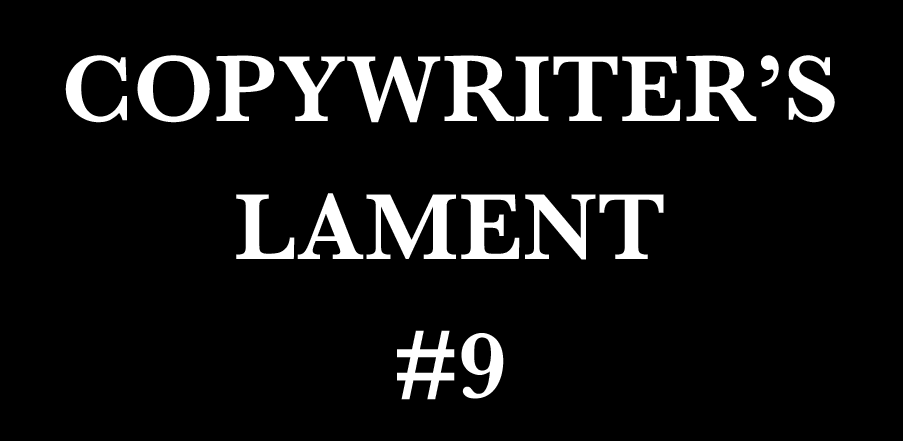I write tons of copy. Lots of long form, say for websites, blog posts, the occasional flyer, brochure, and the like. My clients often turn my copy over to a proofreader, a practice I should be grateful for, I suppose. But I pay for Grammarly to find my stupid mistakes and ignore the mistakes it finds that aren’t mistakes (more on that in subsequent Laments).
|
John HofmeisterWhen I'm not writing for clients, I write about things that interest me. Quite of bit of satire, a genre that has become increasingly difficult to work in since reality has become such a farce. Archives
February 2023
Categories |
|
Copyright © 2020 John Hofmeister • Freelance Copywriter • Creative Director • Columbus, Ohio. All materials on this website are presented exclusively for viewing by John Hofmeister clients and prospects. Any use of this website will constitute your agreement not to copy, modify, reformat, rebroadcast, or otherwise reproduce the work displayed here. Thank you.
|



 RSS Feed
RSS Feed
